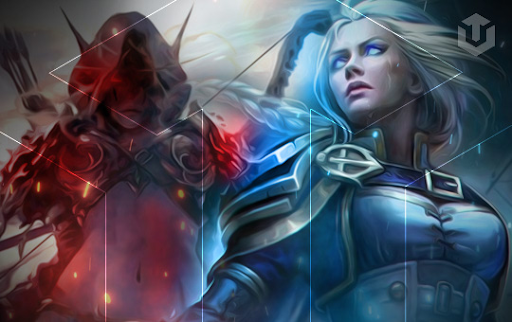Within the realm of digital entertainment, gaming has blossomed into a worldwide cultural sensation that knows no geographical or linguistic boundaries. This expansive domain of global media gaming thrives as a vibrant ecosystem uniting technology, artistic expression, and community engagement, delivering an enthralling experience that captures the imaginations of countless individuals across the globe.
Our journey takes us deep into the thrilling universe of global media gaming, where we will examine its influence, variety, and forthcoming possibilities.
The Global Reach of Gaming
- International Appeal: One of the defining characteristics of global media gaming is its universal appeal. Games, whether they are on PC, console, or mobile platforms, are enjoyed by people from diverse backgrounds, making it a truly global form of entertainment.
- Localization: Game developers recognize the importance of localization. Titles are translated into multiple languages, and cultural nuances are taken into account to ensure that players worldwide can immerse themselves fully in the gaming experience.
- Esports Explosion: Esports, or competitive gaming, has taken the world by storm, drawing massive global audiences and rivaling traditional sports events. The global esports industry is thriving, with professional players and teams achieving celebrity status. Among these are top YouTubers who have gained fame for their gaming content, live streams, and participation in these tournaments, showcasing the intersection of gaming and digital content creation. These influencers have become key figures in the gaming community, significantly contributing to the industry’s growth and popularity.
- Cross-Platform Play: Game developers are increasingly embracing cross-platform play, allowing gamers on different devices to play together seamlessly. This trend fosters inclusivity and brings players from various platforms into a single gaming community.
Diversity in Gaming
Diversity in gaming has become increasingly important in recent years, reflecting a growing recognition of the need for greater representation and inclusivity in the industry. Efforts to promote diversity encompass various aspects, including characters, developers, and gaming communities. This ongoing push for diversity aims to create a more inclusive and enjoyable gaming experience for all.
Let’s examine the diversities in gaming niche.
Genres Galore
The world of gaming is incredibly diverse when it comes to genres. From action-packed shooters to serene simulation games, there’s something for everyone. The ability to explore new worlds, solve complex puzzles, or engage in intense battles appeals to a wide range of tastes and preferences.
Indie Revolution
Independent game developers have made a significant impact on the industry, offering unique and innovative gaming experiences that often push the boundaries of storytelling and gameplay. Titles like “Hollow Knight,” “Celeste,” and “Undertale” have received critical acclaim, proving that innovation often thrives outside of the mainstream. These indie games display the creative potential of smaller studios and underscore the importance of diversity in the gaming landscape, allowing for a wider range of voices and ideas to flourish.
Cultural Representation
Recent years have seen an increased focus on diverse representation within games. Characters from various ethnic backgrounds, gender identities, and orientations are becoming more prevalent, promoting inclusivity and representation in the gaming world. Games like “The Last of Us Part II” and “Tell Me Why” have garnered attention for their nuanced portrayal of LGBTQ+ characters.
Educational and Therapeutic Applications
Gaming is not just about entertainment; it also has educational and therapeutic applications. Serious games and simulations are used in education and training, providing interactive and immersive learning experiences that can enhance understanding and retention of complex concepts.
Additionally, video games are increasingly being used for therapy and rehabilitation, helping individuals with various conditions, including anxiety, depression, and post-traumatic stress disorder. These therapeutic games offer a unique avenue for treatment, allowing individuals to engage in enjoyable and interactive experiences that can contribute to their overall well-being and recovery.
The Impact of Global Media Gaming
Economic Powerhouse: The gaming industry has become a major economic force, with revenue surpassing that of movies and music. Game companies invest heavily in research, development, and marketing, creating a ripple effect on job markets worldwide.
Cities like Los Angeles, Seoul, and Shanghai have become hubs for gaming and esports, attracting talent and investment from around the globe.
Social Connection: Gaming has become a way for people to connect with friends and strangers alike. Online multiplayer games and social platforms like Twitch and Discord facilitate communication and community-building on a global scale.
Cultural Influence: Gaming has seeped into mainstream culture, influencing various domains including fashion, music, and traditional sports. Iconic characters like Mario and Lara Croft are recognized globally. In addition to these influences, gaming has also intertwined with other digital content forms. For instance, many gamers have ventured into starting their own podcasts on platforms like YouTube, sharing game reviews, strategies, and gaming culture, thus blending gaming expertise with the growing trend of podcasting. This crossover has further enriched the gaming community, offering diverse forms of content for enthusiasts.
Popular games like “Fortnite” have hosted virtual concerts, blurring the lines between gaming and entertainment in unprecedented ways.
The Future of Global Media Gaming
The future of global media gaming holds immense potential for continued growth and evolution. As technology advances and connectivity improves, we can expect to see even more innovative and immersive gaming experiences that transcend borders and connect players worldwide.
The industry’s expansion into new markets and the ongoing development of emerging technologies promise an exciting future for gamers and the broader media landscape.
Technological Advancements
Advancements in technology, such as virtual reality (VR) and augmented reality (AR), promise to revolutionize gaming experiences, making them even more immersive and interactive. VR headsets like Oculus Quest and AR games like “Pokémon GO” are just the beginning of this transformative journey. These technologies have the potential to blur the lines between the virtual and real worlds, offering gamers entirely new dimensions of gameplay and storytelling possibilities.
Sustainability and Responsibility
As the gaming industry grows, it faces challenges related to sustainability and responsible game design. Ethical concerns around microtransactions and loot boxes are being addressed, ensuring that players are treated fairly. Additionally, companies are increasingly focusing on reducing their environmental impact through eco-friendly practices.
Community-Driven Development
Crowdsourcing and community-driven development are becoming more prevalent in the gaming industry. Players are actively involved in shaping the future of their favorite games through feedback, modding, and even crowdfunding campaigns. This collaborative approach ensures that games continue to evolve to meet the desires of their player base.
Developers are increasingly recognizing the value of engaging with their communities, fostering a sense of ownership and loyalty among gamers while also tapping into a wealth of creative ideas and innovations that can enhance the gaming experience. As this trend continues, we can expect to see even more player-driven content and features shaping the landscape of the gaming world.
Global Media Gaming: Shaping the Digital Age and Beyond
In conclusion, global media gaming is a remarkable force in today’s world, bridging cultures, connecting individuals, and pushing the boundaries of entertainment and technology. With its diverse genres, cultural representation, and economic impact, gaming is not just a pastime; it’s a cultural phenomenon that continues to shape our digital age.
As technology evolves and the gaming community grows, the future of global media gaming promises even more exciting innovations and experiences for players worldwide, solidifying its place as a cornerstone of modern entertainment and culture.
FAQs
What is Global Media Gaming?
Global Media Gaming refers to the worldwide phenomenon of video gaming, which encompasses various platforms (PC, console, mobile) and genres, and connects people across different cultures and geographical locations.
How has gaming achieved international appeal?
Gaming has achieved international appeal due to its diverse range of genres, localization of games in multiple languages, the rise of esports, and the implementation of cross-platform play, making it accessible and enjoyable for a global audience.
What is the significance of esports in global gaming?
Esports, or competitive gaming, has become a major component of global gaming, drawing massive audiences and offering professional opportunities, similar to traditional sports. It has become a billion-dollar industry with its own celebrities and influencers.
Why is diversity important in gaming?
Diversity in gaming is important as it reflects the need for representation and inclusivity, offering players characters and narratives that resonate with a wide range of experiences and backgrounds, thus enriching the gaming experience for everyone.
How do independent game developers contribute to the gaming industry?
Independent game developers contribute by introducing innovative and unique gaming experiences, often exploring new storytelling methods and gameplay mechanics, thereby diversifying the gaming landscape beyond mainstream titles.





